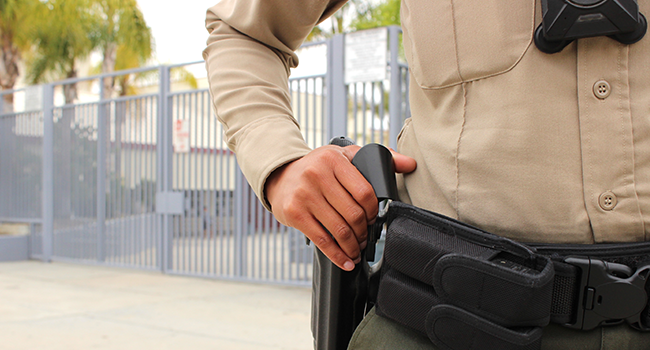
Mississippi District Collaborates with City to Hire More School Resource Officers
The Tupelo Public School District is collaborating with the Tupelo Police Department to increase the number of school resource officers on its campuses.
- By Jessica Davis
- May 13, 2019
The Tupelo Public School District announced Wednesday a collaboration with the Tupelo Police Department that will allow them to increase the number of school resource officers on its campuses.
“When there is an incident, and, unfortunately, in the town the size of Tupelo, there are incidents that occur, it is comforting to our parents to know there is a police officer available to oversee the safety of their children,” TPSD Superintendent Rob Picou said.
Starting July 1, there will be nine school resource officers working on Tupelo school campuses.
The Tupelo City Council approved May 7 an agreement with the district to increase the number of police officers on campuses. Per the agreement, TPSD will give the city $189,000, which the city will use to pay salaries and equipment costs associated with the hiring of three new officers.
The three new officers will work for the Tupelo Police Department but will be assigned to work at district schools during the school year.
According to Tupelo Police Captain Terry Sanford, the department is currently working on school assignments for the officers. The goal is the eventually have a school resource officer present at every Tupelo school, he said.
“What we are trying to do is make sure every school is covered,” Sanford said.
Sanford said June and July are busy for school resource officers, due to summer camps and annual training sessions. The school resource officers will undergo training during the summer to be prepared for the fall.
According to District Assistant Superintendent Andy Cantrell, part of a school resource officer’s job is to build trusting relationships with students.
“We learned from Sandy Hook that 80 percent of the time, if someone is going to do something, then they will tell somebody and we have multiple ways they can tell us about different events,” Cantrell said.
The district has a tip line and number people can text to report suspicious activity. TPSD also monitors online activity for keywords that could indicate potentially suspicious or violent activity. Cantrell said that depending on the situation, a school administrator, law enforcement officer or counselor could be brought in to help.
“We have these layers of protection and do everything we can to just try to make sure we have these open lines of communication with our students. That is the key to ensure their safety,” Cantrell said.
About the Author
Jessica Davis is the Associate Content Editor for 1105 Media.